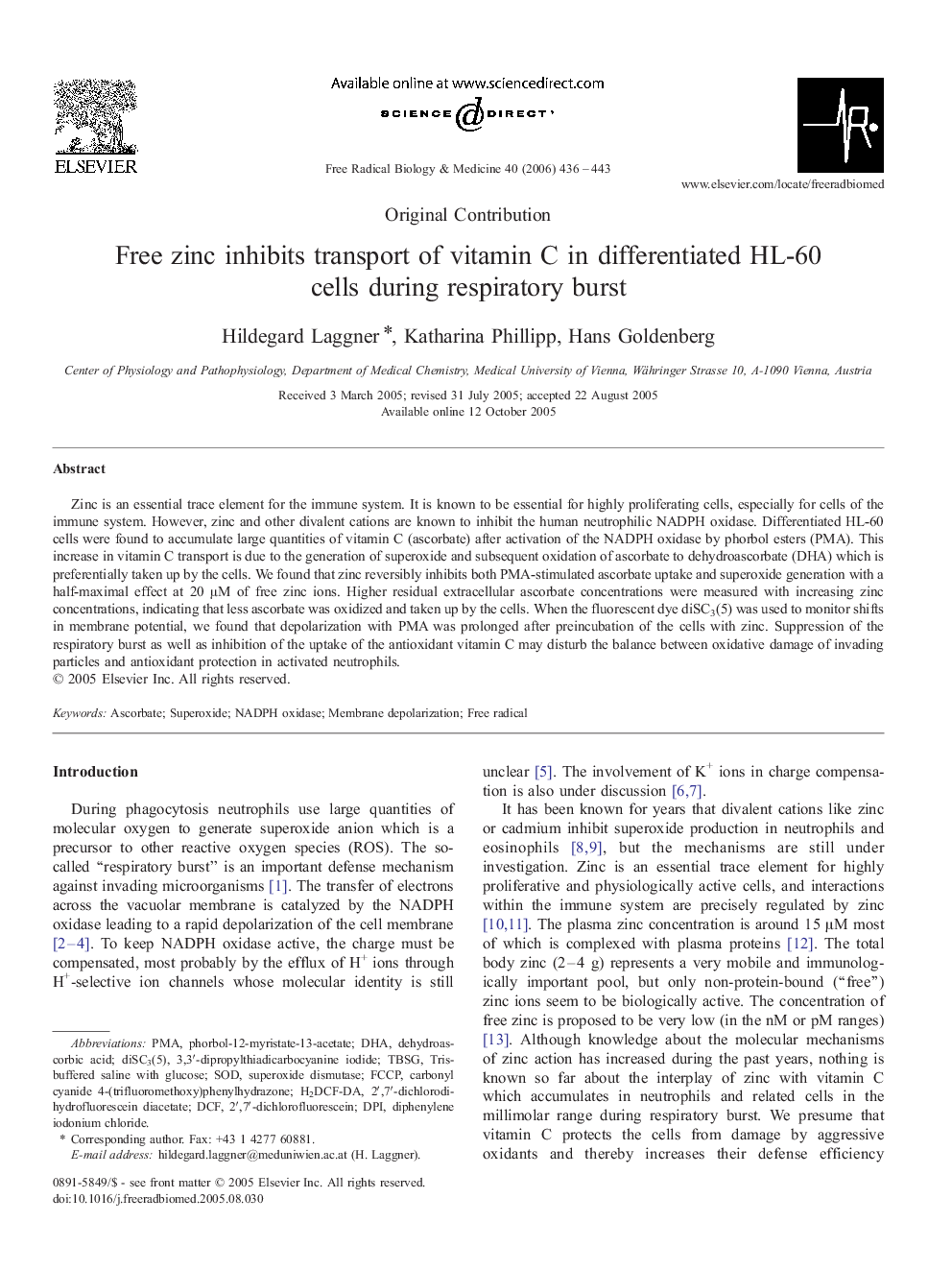| Article ID | Journal | Published Year | Pages | File Type |
|---|---|---|---|---|
| 1912016 | Free Radical Biology and Medicine | 2006 | 8 Pages |
Abstract
Zinc is an essential trace element for the immune system. It is known to be essential for highly proliferating cells, especially for cells of the immune system. However, zinc and other divalent cations are known to inhibit the human neutrophilic NADPH oxidase. Differentiated HL-60 cells were found to accumulate large quantities of vitamin C (ascorbate) after activation of the NADPH oxidase by phorbol esters (PMA). This increase in vitamin C transport is due to the generation of superoxide and subsequent oxidation of ascorbate to dehydroascorbate (DHA) which is preferentially taken up by the cells. We found that zinc reversibly inhibits both PMA-stimulated ascorbate uptake and superoxide generation with a half-maximal effect at 20 μM of free zinc ions. Higher residual extracellular ascorbate concentrations were measured with increasing zinc concentrations, indicating that less ascorbate was oxidized and taken up by the cells. When the fluorescent dye diSC3(5) was used to monitor shifts in membrane potential, we found that depolarization with PMA was prolonged after preincubation of the cells with zinc. Suppression of the respiratory burst as well as inhibition of the uptake of the antioxidant vitamin C may disturb the balance between oxidative damage of invading particles and antioxidant protection in activated neutrophils.
Keywords
3,3′-dipropylthiadicarbocyanine iodideH2DCF-DAPhorbol-12-myristate-13-acetateDcfDPIFCCP2′,7′-dichlorodihydrofluorescein diacetate2′,7′-dichlorofluoresceinMembrane depolarizationDiSC3(5)PMAAscorbateDehydroascorbic acidNADPH oxidaseDHAdiphenylene iodonium chlorideFree radicalSODSuperoxideSuperoxide dismutasecarbonyl cyanide 4-(trifluoromethoxy)phenylhydrazone
Related Topics
Life Sciences
Biochemistry, Genetics and Molecular Biology
Ageing
Authors
Hildegard Laggner, Katharina Phillipp, Hans Goldenberg,
